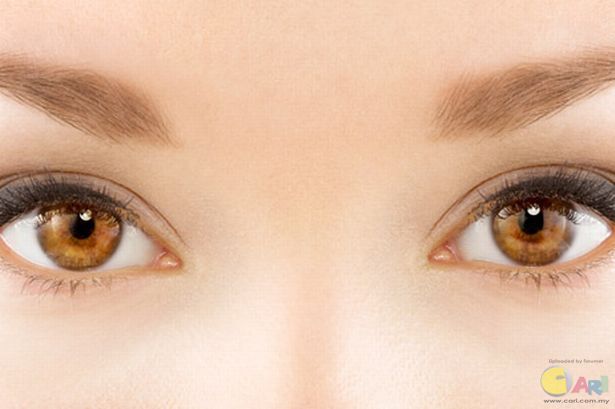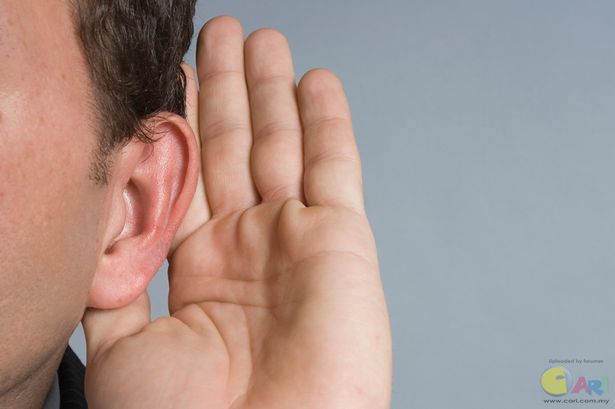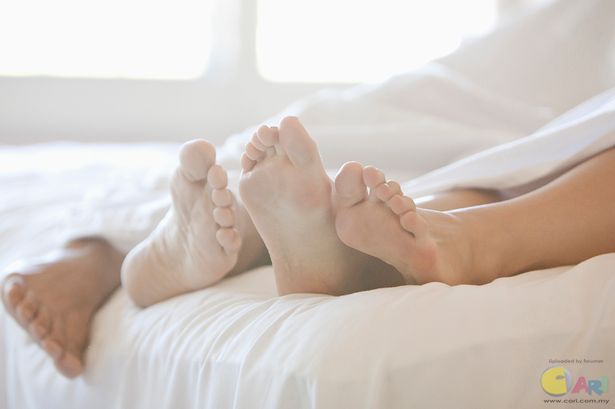 We're told size doesn’t matter... but scientists keep finding new ways to suggest it actually does. A controversial study claims women with wider hips have more sexual partners and more one-night stands. Leeds Uni boffins say the broad-of-beam are more suited to childbirth and therefore keener to romp. Many will scoff – women with big hips presumably – there’s plenty of science to say physical attributes DO offer clues to our personalities. From height and hair to boobs and bums, our bodies are sending out messages... Head People with large skulls don’t get so forgetful as they age. Southampton University found pensioners with bigger craniums were better at memory tests. A spokesman said: “The larger a person’s head, the less likely their cognitive abilities are to decline in later years.”  Hair Bald men are considered tougher and more macho – but only if they shave their head completely. A University of Pennsylvania study found deliberate chrome-domes were perceived as taller, stronger and more likely to be leaders. Redheads are most sensitive to pain and often require higher doses of anaesthesia and pain killers. Blonde women are more confident because they are used to getting more attention, say experts at the University of California. Forehead A wide one shows cleverness, practicality, diligence and a head full of ideas. A flat one speaks of pragmatism and sticking to the facts.  Eyebrows Chinese face-readers see personality in the tiniest details. People with thick, dark brows are active and friendly while light and sparse-browed folk follow directions to the letter. Brows that point upwards indicate a strong work ethic. Eyes A study at Charles University in Prague, found men with brown eyes are more gentle and trustworthy. But they’re probably bad risers. The journal of Chronobiology International claim the sleep cycles of people with darker eyes are up to two hours behind everyone else. Nose Telling lies really does make your nose grow. Scientist in Illinois found fibbers’ noses swell whent hey’re being economical with the truth. It’s too small to see with the naked eye, but the swelling is itchy and can trigger tell-tale scratching.  Ears Small ears could make you more prone to eczema as skin that flakes off inside is harder to expel, according to George Murty, consultant ear, nose and throat surgeon at University Hospitals Leicester. Small, very low-set ears may indicate kidney problems. Mouth People with large tongues may be prone to obstructive sleep apnoea and terrible snoring. Big lips make us more sexually attractive to the opposite sex, says US psychology Professor Michael Cunningham. Men want “fullness, redness and warmth” but women want them a bit smaller and “a combination of sensuality and ruggedness.” Chin Women with big chins are more likely to cheat because they have higher levels of testosterone, according to US research.  Chest Large-breasted women tend to have higher IQs than those less well endowed, a poll of 1,200 women in Chicago concluded. Women with big boobs and narrow waists also have more children. Men with hairy chests are less attractive to women, according to research in Finland Ladies prefer a smooth torso, particularly at their most fertile time of the month, because hairy men are more likely to have higher levels of female hormone oestrogen, which could affect their virility. Arms People who have longer arms than average are 10% less likely to get Alzheimers and 7% less likely to develop dementia. Hands Men with ring fingers longer than their index fingers are bad drivers but those with long index fingers are more likely to suffer depression. Other scientists believe the length of a man’s ring finger points to his attitude to money - a ring finger longer than his index finger means he’s likely to be richer. Children with ring fingers longer than index fingers do better at maths but those with second and fourth fingers the same length perform better in literacy tests, a University of Bath study found.  Tum Fatter men have greater sexual stamina than slim men....making love for an average of 7.3 minutes, while thin blokes hold on for just 108 seconds. Heavy men have higher levels of female sex hormones, slowing their progress to orgasm. Omphalomancers – people who study belly buttons – claim women with bowl-shaped or concave navels are sensitive and prone to worry. Hips Women with big hips are more forgetful than their peers....so probably don’t remember all the one night-stands. But storing fat around the hips rather than your middle, could protect them better against diabetes and heart disease.  Bum A recent study in Russia claimed men with muscly buttocks are strong, persistent and last longer in bed while chaps with saddle bag bums are boring, while women with round bottoms are highly-sexed, materialistic and unkind while those with saggy bums are good wives and careful mothers. Privates Men with smaller testicles are more likely to be involved in childcare. The researchers from Emory University in Atlanta suggest that lower levels of testosterone may suppress a man’s mating efforts, allowing him to channel all his energy into nappy-changing, feeding and nurturing. Thighs A Danish study of 3000 men and women found those with thinner thighs had a higher risk of heart disease and premature death. Researchers thought low muscle mass in the area could be to blame, as it could affect insulin sensitivity, while researchers at Oxford University think the fat in wobbly thighs traps fatty acids and stops them flowing through the bloodstream and getting deposited in vital organs.  Feet Men with big feet do not always have large manhoods. A study carried out in 2002 proved there is no direct correlation between foot length and penis length. People with bunions are probably doing too much for other people, and not enough for themselves. People with wide feet are usually very hard-working. If you can wiggle your little toe separately from your fourth toe, you are an impulsive, adventurous, charming flirt. If you can’t, you value routine, predictability and loyalty. Legs Long legs indicate a lower risk of type 2 diabetes. Bristol University scientists showed each 4.3cm increase of leg length resulted in a 19 per cent reduction in risk. And other researchers have discovered that women with legs between 20 and 29 inches long tend to have higher levels of four enzymes that indicate liver disease. Shorter legs are an indication of poor childhood nutrition, which may also play a role in liver function. Mirror
|
ADVERTISEMENT